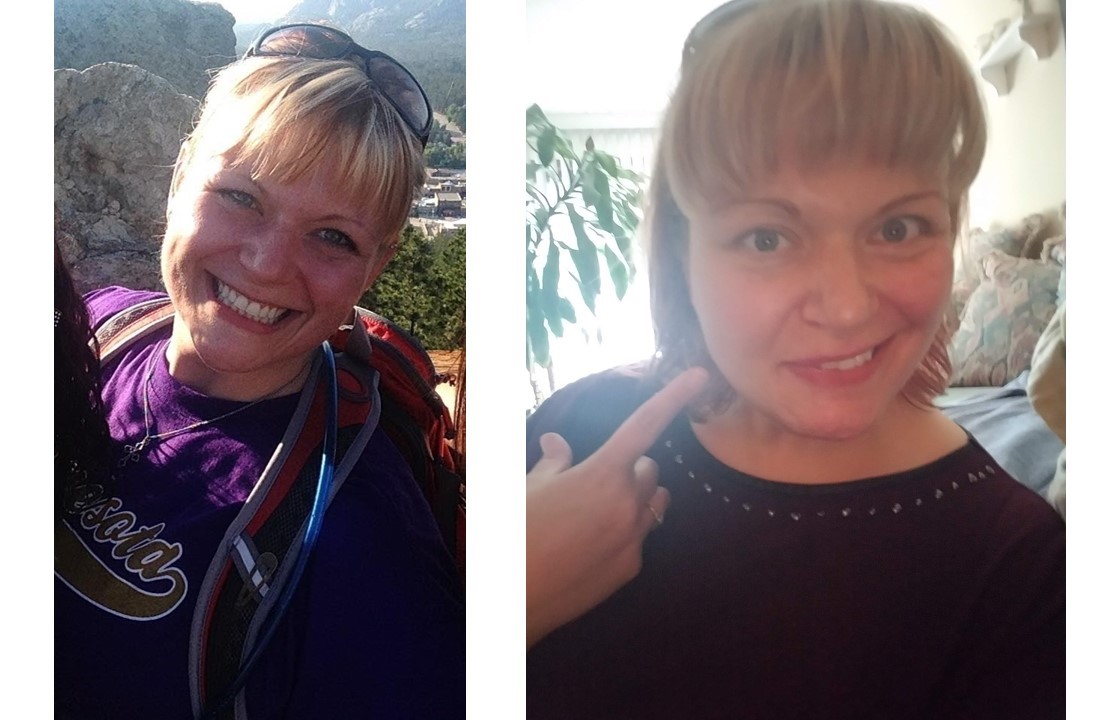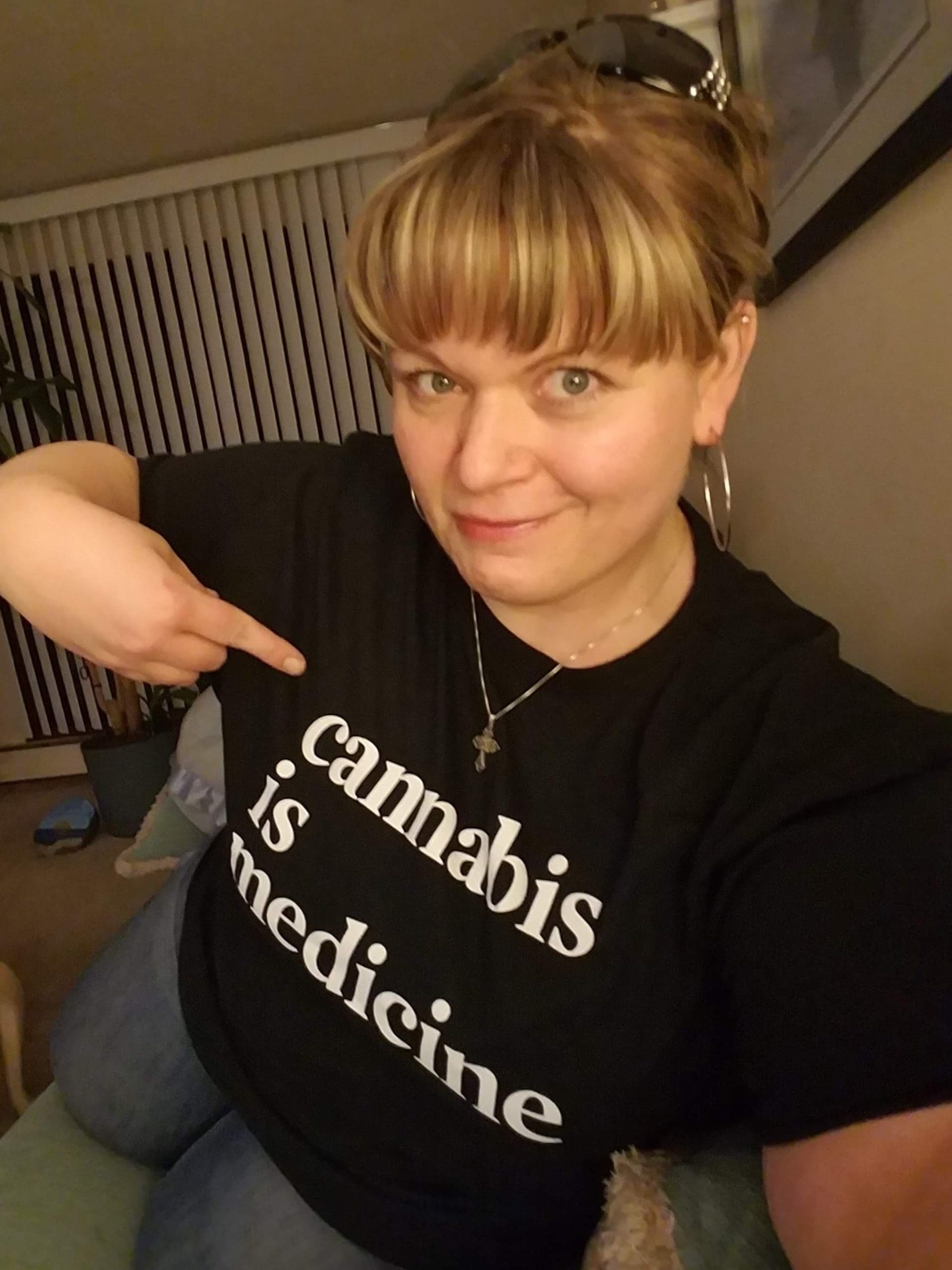Women’s History Month: Talking to Patricia G. About How Cannabis Improved Her Quality of Life
At Goodness Growth Holdings and Vireo Health, we pride ourselves on the diversity of our team (more than 60% of our workforce identify as a woman, minority or veteran), and on our ongoing commitment to social equity initiatives including joint efforts with Women of Color Worldwide, WomenGrow, and the National Hispanic Cannabis Council. Additionally, we are dedicated to hosting expungement clinics, raising funds for Last Prisoner Project, and creating educational programming for our team members and communities. Diversity has been a cornerstone of our culture since our earliest days (for example we were the first cannabis company to sign the CEO Action for Diversity & Inclusion pledge), and we believe celebrating the diversity among our team members and our communities makes us a stronger company and a better community partner.
Each March, we take time to recognize the accomplishments of women and the gender bias that still exists. In the United States, the entire month of March is recognized as Women’s History Month. First recognized in 1981 as Women’s History Week, the annual event recognizes the contributions women have made over the course of American History. Numerous nationwide museums and archival agencies have joined forces to offer exhibitions and collections online highlighting the achievements of women in America.
And internationally, March 8 is recognized as International Women’s Day, when people across the globe celebrate the social, economic, cultural and political achievements of women and rally to accelerate gender parity. The theme for this year’s International Women’s Day is Break the Bias, encouraging everyone to fight to end bias, stereotypes and discrimination and create a world where difference is valued and celebrated.
Gender bias shows up in many areas of society, including in health care, where it contributes to a worldwide disparity in women’s health care. Many conditions impacting women are under-researched and frequently go undiagnosed, and doctors often view pain differently in men and women, according to International Women’s Day. Research has found that doctors are more likely to view men with chronic pain as “brave,” but are more likely to view women with chronic pain as “emotional” and treat their pain as a product of a mental health condition instead of a physical one. Additionally, much of the medical research that conducted throughout history involved only male participants, leading to gaps in knowledge about how health conditions and medications affect women.
As we recognize International Women’s Day and Women’s History Month, we’re celebrating the contributions and accomplishments of women – and recognizing the bias that still exists and the work that still needs to be done. As part of that effort, Goodness Growth’s Diversity, Equity and Inclusion Council is highlighting several women among our team, our patients and our communities.
First up is Patricia G., one of our patients in Minnesota.
The DEI Council was excited to hear from Patricia about her experience with medical cannabis in Minnesota, how it has improved her quality of life, and why the addition of cannabis flower in Minnesota’s program means the potential for even greater improvement.
Patricia G. was diagnosed with Ramsay Hunt Syndrome in November of 2017. The rare syndrome occurs when a shingles outbreak affects facial nerves located near the ears. Ramsay Hunt Syndrome can cause pain, facial paralysis, hearing loss, vertigo, a change in taste or loss of taste, and more symptoms.
Patricia, before and after her diagnosis
While symptoms can vary from person to person, Patricia said she had all of them – including full paralysis of the right hemisphere of her face and “excruciating pain from the top of my head to my shoulder and deep within the ear canal. Horrendous pain.”
For two years, Patricia and her doctors tried to manage the pain and symptoms with pharmaceutical drugs. At one point, Patricia had been prescribed 18 medications for pain management, including narcotics and muscle relaxers – yet she still wasn’t finding relief, and was experiencing a “laundry list” of negative side effects.
In addition to the pain, Patricia was having to come to terms with other effects of the syndrome, including the facial paralysis.
“I was attempting to radically accept that the nerve damage was permanent; the fact that I would never smile again was devastating,” she said.
After several years without relief, Patricia’s multidisciplinary treatment team told her there was nothing more they could pharmaceutically do to help manage her pain and suggested medical cannabis as a “hail Mary.”
“There were literally no other options,” she said.
Even with their suggestion, Patricia wasn’t sure at first about trying cannabis.
“With my career path and coming from a conservative family, I faced significant opposition and negativity about moving towards medical cannabis,” she said. “However, in 2019 I was certified under intractable pain through Twin Cities Pain and met with Dr. Darla at Green Goods. It was that day that the trajectory of my recovery and pain management changed.
“Medical cannabis literally saved my life. Within days, I was titrating off pharmaceuticals and within a month, I was using medical cannabis as my primary source of pain and inflammation control.”
The recent addition of cannabis flower to Minnesota’s Medical Cannabis program is a “game changer” for patients like herself, Patricia added. Because it requires less processing, flower doesn’t cost as much as other forms of cannabis. And it has a quicker onset time than cannabis products like tablets or tinctures.
“Not only does [the availability of flower] reduce overall cost, but access to the pure, unadulterated medicine in fast-acting ways opens the door to exponential improvements in symptom management and overall quality of life,” Patricia said. “The introduction of flower is a win-win for medical cannabis patients in Minnesota.
“Cannabis literally saved my life every single day. There have been costs, but I believe in the healing potential of this powerful plant.”
Thank you, Patricia, for taking the time to share your story with us! Look out for more profiles of our female team members and patients throughout Women’s History Month!


